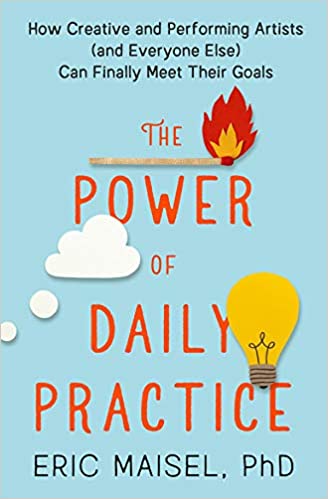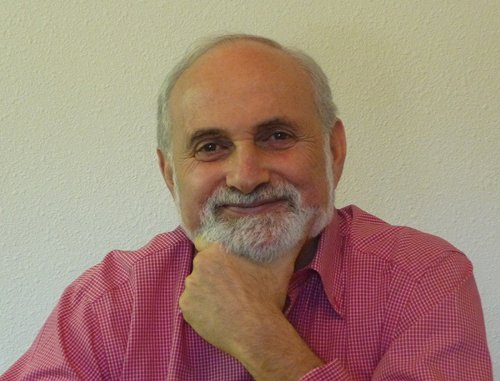By Mary Ann Moore
I have a daily morning practice of sitting at a table in front of my bedroom window. I greet all my guides including the mountain known as the Grandmother of All Surrounding Mountains to the Snuneymuxw First Nation on whose unceded land I live. I write my dreams in a journal and continue writing memories that could become a personal essay or a series of poems. I’ve realized that while my morning practice isn’t meant to “accomplish” anything, that can happen as I write a bit each day. I’ve done that with reading books of poetry too, reading a few poems a day until I’ve completed the collection. One of them was To the Wren: Collected & New Poems, 1991-2019 by the late Jane Mead which is almost 600 pages long.
Eric Maisel, a creativity coach in California, has a new book entitled The Power of Daily Practice (New World Library, 2020). Eric has written more than fifty books and one of them, A Writer’s San Francisco (New World Library, 2006), prompted me to name this blog “A Poet’s Nanaimo.” (I’ve been following his work for about twenty years!)
Eric accomplishes a lot and I’m getting an idea as to how he does it by treating each day as a series of daily practices. He says daily practice “is as much about paying attention to your life purpose choices as it is about getting something done.”
Thinking in those terms, chores and tasks such as grocery shopping take on new meaning. If one of my daily practices is to tend to my body with healthy food and exercise, then choosing food for the week is tending to that practice.
A daily practice as Eric describes it “is the formal way you pay daily attention to something that is important to you. You can have more than one daily practice if several things are important to you . . . “
Eric answers some frequently asked questions and then describes “The Elements of Practice” in Part I of The Power of Daily Practice. Initiation is the first element which is something I do when I greet my guides in the morning. Eric selects a favourite cup for his morning coffee from his selection of six favourites from Prague, Berlin, New York, Rome, Paris and Savannah. “By starting out the same way each day, you reinforce the idea that your daily practice matters,” he says.
Other elements of practice include simplicity, regularity, seriousness. “Not the solemnity of dirges, Eric says. “The solemnity of rivers. The solemnity of sky. The solemnity of wood.”
Playfulness (maybe some improvisation), ceremony, discipline, devotion, and innovation are also elements of a daily practice.
There are many varieties of daily practice and Eric describes eighteen of them in Part II.
“A rich, full day organized around your life purposes and composed of four distinct daily practices: a creativity practice, a business-building practice, a recovery practice, and an activism practice” is an example of approaching multiple daily practices.
Over several years, Eric has developed a philosophy of life called Kirism which is “an updated understanding of human nature and the challenges of living”. He refers to Kirism as one of the varieties of practices in a chapter entitled “Your Kirist Practice.”
The chapter includes “a brief fifteen-point kirist guide to living” to help readers better understand what Kirism is all about. The first action step is “Identify your life purposes.” Eric says: “Life has no purpose; rather, it is comprised of the life purpose choices that you make.” Another of the action steps is “Start your day with a practice.”
You may be asking yourself what are my life purpose choices? Eric includes a chapter in Part II about “Your Life Purposes Practice.” That’s the practice you could have to identify and name your multiple life purposes. In each of the chapters, Eric gives an example of someone he has worked with and in this one, a client named Jennifer, with Eric’s help, came up with a daily practice that was about “reimagining” her life.
“Your Activism Practice” is something we discussed in the last women’s writing circle. In the living room in which we sat, near a fairly busy main road, we remembered a man who walks up and down wearing a sandwich board with all sorts of Bible quotations and praise for Jesus. He walks very calmly and I don’t know if he engages with people or leaves it up to them to see what he has to offer. That’s his activism practice.
 I was recalling my years in Toronto when I volunteered at a rape crisis centre, for a couple of adult literacy programs and worked for a union-side labour law firm. I marched, and picketed in various demonstrations for pro-choice, Take Back the Night, International Women’s Day and Gay Pride Day. In Nanaimo, I led circles for a drop-in for the mental health community.
I was recalling my years in Toronto when I volunteered at a rape crisis centre, for a couple of adult literacy programs and worked for a union-side labour law firm. I marched, and picketed in various demonstrations for pro-choice, Take Back the Night, International Women’s Day and Gay Pride Day. In Nanaimo, I led circles for a drop-in for the mental health community.
Encouraging others to tell their stories could be my current activism practice including writing reviews of books I figure people ought to take note of like this one!
In the writing circle, one of the participants quoted Sufi mystic Hafiz who said: “The words you speak, become the house you live in.” It’s a good reminder to be mindful of our words in the world and how they can help speak up for social injustice even if we aren’t taking to the streets with placards or sandwich boards.
Each of the chapters has a quote and in the chapter on “Your Activism Practice” is one by Malcolm X: “I’m for truth, no matter who tells it. I’m for justice, no matter who is for or against. I’m a human being, first and foremost, and as such I’m for whoever and whatever benefits humanity as a whole.”
Of course there are challenges to daily practices and Part III deals with that.
“Anxiety and Distractibility” is Challenge 8 and for this challenge as well as several others, Eric happens to have written a book.
Mastering Creative Anxiety (New World Library, 2011) for instance, points out the value of ceremony or ritual to alleviate anxiety. I was grateful to hear that as there are guidelines in the writing circles to help create a safe container and I now see that those guidelines and ritual also help reduce anxiety for the participants involved, especially those new to the practice.
In his epilogue to The Power of Daily Practice, Eric says: “I think that the best way to maintain a daily practice is to make it integral to your life as part of a comprehensive philosophy. It isn’t just something that you do – it is part and parcel of how you live.”
As Eric has so many books to his credit (between 50 and 60), you may wonder how he manages to write as well as create programs, coach clients, continue to be involved in several “activist causes,” enjoy a relationship with his wife, tend to his grandchildren. He writes “just about” every day as that is his “primary daily practice.” It may only be for an hour but keeping to it has meant “books accumulate.” It doesn’t mean there aren’t tedious or difficult days “but none of that jeopardizes my practice,” Eric says, “because showing up to the writing every day matches my vision of how my life ought to be lived.”
“

“Every day is a day to pay attention,” Eric says. So true, don’t you think?
If you’d like to learn more about Kirism, you can visit kirism.com. You can see what else Eric is up to and what he has to offer in the way of trainings and services at ericmaisel.com.
**
Guest Author Bio:
Mary Ann Moore brings her passion for poetry and for writing as a spiritual and wellness practice to the Writing Life Circles she offers in Nanaimo, British Columbia and beyond. As a poet, writer, writing mentor and circle leader, she has twenty years of experience writing in community and finds great delight in seeing people awaken their creative potential. She offers a nine-month mentoring program, by distance, called Writing Home: A Whole Life Practice. Mary Ann’s poetry, fiction and personal essays have appeared in chapbooks; literary journals including Prairie Fire, Carousel, Room, Freefall and Vallum; anthologies including Living Artfully: Reflections from the Far West Coast; and on CD: When My Heart is Open. Her book reviews and travel pieces have appeared in the Vancouver Sun, the Kitchener-Waterloo Record, Vitality magazine, More Living magazine and at storycirclebookreviews.org. A full-length book of her poems, Fishing for Mermaids, was published by Leaf Press in 2014.
Mary Ann writes a blog at www.apoetsnanaimo.ca
She is a member of our IAJW Journal Council.



I appreciated the rich detail in this review. Thanks!
Hi Paula, thanks for your feedback.